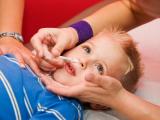Jan 22, 2010
WHO: Pandemic flu activity holds steady
Global flu patterns are about the same as last week, with the most intense activity in North Africa, South Asia, and parts of Eastern Europe, the World Health Organization (WHO) reported today. Novel H1N1 still dominates, but a few countries have detected sporadic seasonal flu cases, especially China, where influenza B cases are increasing. Most of the seasonal H3N2 viruses belong to the Perth-like viruses, included in the Southern Hemisphere's seasonal vaccine, not the Northern Hemisphere's.
http://www.who.int/csr/don/2010_01_22/en/index.html
Jan 22 WHO update
Colleges have vaccine, but few students immunized
The American College Health Association (ACHA) said yesterday that flu activity on college campuses hasn't changed since its last report for the week ending Dec 18. The attack rate stayed at 2.7 cases per 10,000 students. Though vaccine availability has improved dramatically, with 97% of campuses having supplies, the percentage of vaccinated students is rising very slowly. So far only about 9% of students have been vaccinated, up from 8% in the last report.
http://www.acha.org/ILI_Project/ILI_Surveillance.cfm/?date=012210
ACHA report for week ending Jan 15
Ireland to offer workplace vaccination
Healthy adults in Ireland will be offered the H1N1 vaccine at their workplaces starting in mid February, the Irish Independent reported today. The nation's Health Service Executive (HSE) will provide the vaccine to employers that have occupational health programs. Workers who can't get the vaccine at work will be offered it at HSE-run clinics, said Pat Doorley, HSE head of population health. He said more than 800,000 people, about 18% of Ireland's population, have been vaccinated so far.
http://www.independent.ie/national-news/swine-flu-jabs-at-workplace-next-month-2026558.html
Jan 22 Irish Independent report
Severe H1N1 illness linked to ethnicity, slow treatment
In Manitoba, the Canadian province with the highest burden of severe H1N1 illness, patients who required intensive care unit admission and advanced life support for pandemic flu shared several characteristics, according to a new paper in the Canadian Medical Association Journal (CMAJ). They were more likely to have taken longer to receive antiviral treatment or to have underlying conditions, or to be members of First Nations groups.
http://www.cmaj.ca/cgi/content/abstract/cmaj.091884v1
Jan 21 CMAJ article abstract
UK health chief urges H1N1 shots
The second wave of H1N1 influenza in England is "virtually concluding," Sir Liam Donaldson, Chief Medical Officer, said yesterday, but he warned that anyone who has not been vaccinated will be vulnerable when the virus returns in a future season. Anyone who is eligible for the vaccine but has not taken it should "get the jab and protect themselves," he said in a Department of Health bulletin.
http://nds.coi.gov.uk/clientmicrosite/Content/Detail.aspx?ClientId=46&NewsAreaId=2&ReleaseID=410493&SubjectId=36
Jan 21 Department of Health bulletin



















